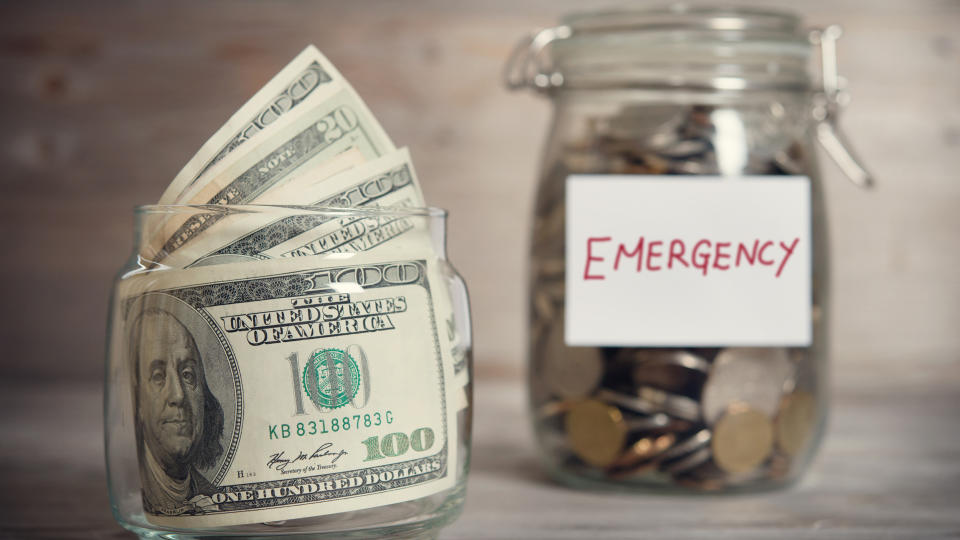All the Steps To Take Now If You Want To Retire Next Year

If you’re getting close to retiring, congratulations! For many Americans, retirement is seen as the culmination of a life spent working, planning and saving.
Read: Jaw-Dropping Stats About the State of Retirement in America
However, in spite of the romantic notions, when you retire you don’t necessarily just “ride off into the sunset” without a care in the world. Just like sound financial planning helped you reach retirement, charting out your path during retirement is important as well. If you take these five steps before you retire, you can spend more time enjoying retirement and less time worrying about it.
Last updated: Feb. 24, 2021

Reevaluate Your Budget
As you head toward retirement, the budget you’ve lived on in your working years is likely out of date. For example, your healthcare expenses in retirement are likely to rise, while other expenses, such as commuting to work, will likely decline. However, everyone’s retirement is different. If your house is paid off and you plan to spend most of your retirement at home tending to your garden, you can reduce line items like commuting, travel, mortgage/rent and restaurant expenses. But if your idea of retirement is renting a new Airbnb every month as you travel the world, you’ll obviously have to greatly increase your rental and travel budgets. Whatever lifestyle you dream of in retirement, your budget is likely to change, so give it a good review before you take the plunge.
Exclusive: Americans’ Savings Drop to Lowest Point in Years

Pay Off Your High-Interest Debts
Nothing will be a bigger drag on your retirement savings than if you have high-interest debt following you into the sunset. For starters, the interest rates on credit cards are typically much higher than those you can earn from investments, especially the more conservative ones commonly used by retirees. While credit card rates average just over 16% for accounts that are assessed interest, many reach over 20%. Meanwhile, the average savings account in the U.S. pays a paltry 0.05% — not 5%, but half of 1%. With high-rate credit card debt, you’ll be running to stand still.
Second, even if you only make minimum payments on your credit card debt — which isn’t advised — that’s still a monthly bill that drains your cash flow. If you can manage to pay off all your high-rate debt before you retire, you’ll free up your monthly cash flow for other expenses or even discretionary spending.
See: The Average Social Security Check the Year You Were Born

Dial Down Your Risk
If you’ve got a good chunk of your investable assets in stocks, congratulations! You’ve likely amassed a good nest egg over the years, as the stock market is currently trading near all-time highs. But as you move into your retirement years, you’ll likely want to reduce the risk profile of your investments. In your working years, you’ve got both time and a regular income stream to help you ride out any corrections in the market. But if your portfolio drops by 40% in your first year of retirement, you might be stuck with a permanently reduced income stream for the rest of your retirement.
This doesn’t mean you should abandon equities — for many people, retirement will last 25 years or more. For your long-term needs, you’ll still likely want to hold some percentage of equities. However, most analysts recommend that you do dial down the number of stocks that you own in retirement to an appropriate risk level. Consult with your financial advisor to find the optimal investment mix for your needs.
More: 30 Things You Do That Can Mess Up Your Credit Score

Keep Adding to Your Emergency Fund
If you’re retiring with a sizable-enough nest egg, you can shift from contributing to your retirement accounts to withdrawing from them. However, even in retirement, you can’t neglect your emergency fund. In fact, there’s a strong argument to be made that you’ll actually need to increase your emergency fund in retirement. For starters, once you’ve retired, you don’t have a steady stream of income to help cover any unexpected emergencies. In retirement, surprise medical bills can be common, and some of these may not be covered by private insurance or Medicare. Also, if your retirement assets dip in value, an emergency fund can help make up for any income shortfalls until your investments recover.
Read: 17 Tips To Live Comfortably Off Just a Social Security Check

Double-Check Your Social Security Math
Claiming Social Security seems like it should be an easy process — simply retire, claim your payments and enjoy your retirement. Yet, there are many strategies for claiming Social Security. Although your Social Security benefit is based on your “full retirement age,” which for most people is age 67, you can actually claim your payments as early as age 62. However, if you claim Social Security early, your benefits will be reduced for the entirety of your retirement. But if you can wait until age 70, your benefits will increase by as much as 8% per year, and that increase is permanent.
Read: 11 Social Security Mistakes That Can Cost You a Fortune
Another factor to consider is your spouse’s claiming strategy. Taken at the right time, your spouse is entitled to a benefit equal to the greater of their own benefit of one-half of your own benefit at full retirement age. You’ll want to choose the strategy that gives you the highest combined income at the time you need it most.
Find Out: The First Thing You Should Do With Your Social Security Check
Lastly, you’ll have to factor in whether or not your Social Security benefits are taxable. For many American families, you’ll have to pay tax on either 50% or 85% of your Social Security benefits. Your income is the primary factor here. You’ll likely want to consult with a tax advisor to find the optimal claiming strategy for you and your family.
More From GOBankingRates
This article originally appeared on GOBankingRates.com: All the Steps To Take Now If You Want To Retire Next Year

